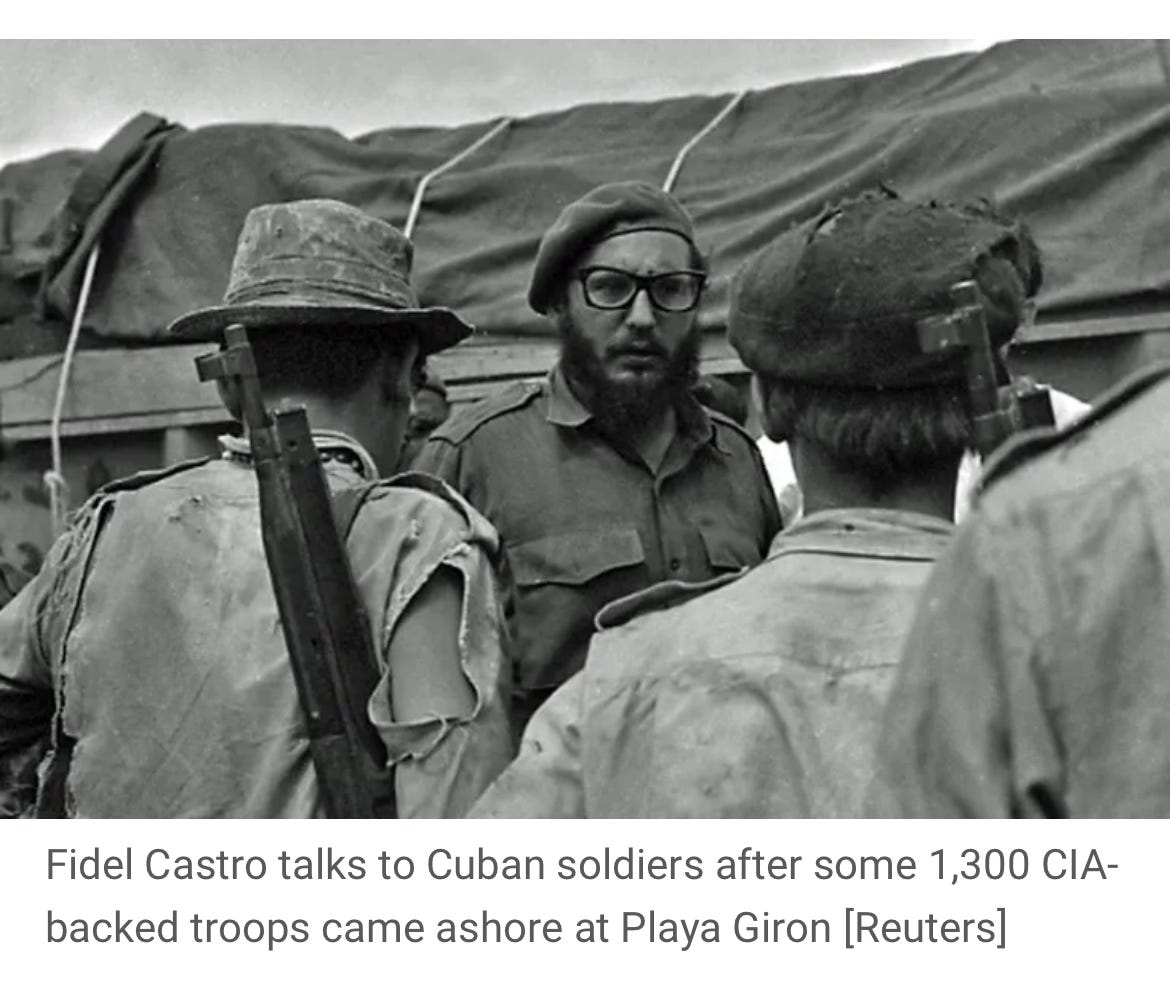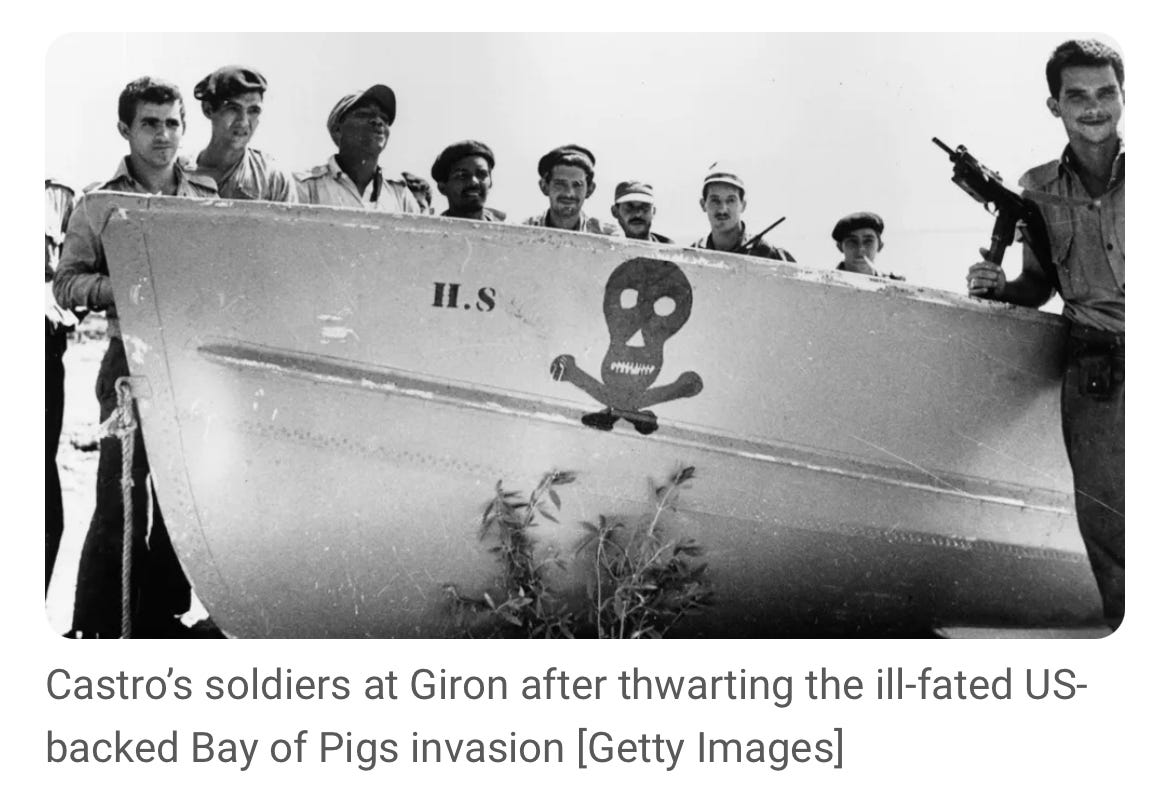JKF’s 1961 Speech “The President & The Press” - A Warning About Secrecy
President John F. Kennedy addressed a crowd of newspaper publishers, in New York City,in 1961. His comments about the importance of transparency, at a pivotal time in history, are worth revisiting.
At the Newspaper Publishers Association Conference, on April 27, 1961, President John F. Kennedy addressed a large crowd of professional journalists. On the heels of the Bay of Pigs fiasco, Kennedy delivered an impressive speech at the Waldorf Astoria Hotel, in New York City. The speech titled ‘The President and the Press’ was a significant moment in the relationship between the U.S. government and the press, where Kennedy expressed his discontent with the media's handling of sensitive information and the broader implications of press responsibility during the Cold War. Given the advantages of hindsight we have today, it’s worth revisiting these remarks and ponder their modern day implications.
Historical Context
The speech was delivered during a period of heightened tension between the United States and the Soviet Union, known as the Cold War. The Bay of Pigs invasion, which occurred just a few weeks earlier, had been a significant embarrassment for the Kennedy administration. The failure of the operation and the subsequent media coverage highlighted the complex relationship between the government and the press, particularly in matters of national security. We know now from the recent release of the Kennedy Assassination files, that there was an interconnected relationship between the press and the CIA, which in some sense, Kennedy was also at war with. I wrote about that relationship in a prior post, about the interconnection between the CIA and a particular journalist named Edward Jay Epstein, at the link below.
You can read the full speech text here.
🔈Audio file(full 20 minute speech)here.
3 minutes Clip Speech Text
“The very word "secrecy" is repugnant in a free and open society; and we are as a people inherently and historically opposed to secret societies, to secret oaths and to secret proceedings. We decided long ago that the dangers of excessive and unwarranted concealment of pertinent facts far outweighed the dangers which are cited to justify it.
Even today, there is little value in opposing the threat of a closed society by imitating its arbitrary restrictions. Even today, there is little value in insuring the survival of our nation if our traditions do not survive with it. And there is very grave danger that an announced need for increased security will be seized upon by those anxious to expand its meaning to the very limits of official censorship and concealment. That I do not intend to permit to the extent that it is in my control. And no official of my Administration, whether his rank is high or low, civilian or military, should interpret my words here tonight as an excuse to censor the news, to stifle dissent, to cover up our mistakes or to withhold from the press and the public the facts they deserve to know.”
……
“For we are opposed around the world by a monolithic and ruthless conspiracy that relies primarily on covert means for expanding its sphere of influence--on infiltration instead of invasion, on subversion instead of elections, on intimidation instead of free choice, on guerrillas by night instead of armies by day. It is a system which has conscripted vast human and material resources into the building of a tightly knit, highly efficient machine that combines military, diplomatic, intelligence, economic, scientific and political operations.”
…….
“Its preparations are concealed, not published. Its mistakes are buried, not headlined. Its dissenters are silenced, not praised. No expenditure is questioned, no rumor is printed, no secret is revealed.”
…….
“No President should fear public scrutiny of his program. For from that scrutiny comes understanding; and from that understanding comes support or opposition. And both are necessary.”~President John F. Kennedy
Modern Day Implications
Press-Government Relationship
Kennedy emphasized the importance of cooperation between the government and the press, particularly in times of national peril. He acknowledged the heavy responsibilities of the press and the need for self-discipline in reporting sensitive information. Kennedy stated, "I do ask every publisher, every editor, and every newsman in the nation to reexamine his own standards, and to recognize the nature of our country's peril" This call for self-censorship in the interest of national security is a theme that continues to resonate to this day - at least for some. I guess Goldberg, at the Atlantic missed the memo about this, when he was ‘accidentally’ copied on a Signal chat with what he initially described as ‘attack plans’ in Yemen.
Transparency and National Security
Kennedy contrasted the open society of the United States, with its free speech and freedom of the press, with the "secret societies" of communist countries, where information is tightly controlled. Many have theorized, that Kennedy was also referring to secret societies in the United States, as well. Freemasonry, Knights Templar, Skull & Bones Society, Illuminati, etc., are all well documented in American history, as well as their impact in shaping what we now know today as a ‘Shadow government’ or unelected figures that can impact our public policies.
He highlighted the need for balance between transparency and security, noting that the government's enemies often use information from the press to their advantage. Kennedy said, "For the facts of the matter are that this nation's foes have openly boasted of acquiring through our newspapers information they would otherwise hire agents to acquire through theft, bribery, or espionage"
It’s also worth mentioning JFK’s warning about subversion and infiltration, as opposed to invasion. Communism was a major cause for concern in 1961 and while it may not be talked about as much in current times, it’s certainly worth mentioning this threat from within, as it relates to various foreign governments, such as the Chinese Communist Party or the spread of dangerous extremism involved in Islamic expansion in the United States. Director of National Intelligence, Tulsi Gabbard, recently warned of Islamic extremism as a national security threat in recent weeks.
In conclusion, I think we could all learn something not only from this speech, but the sentiment that President Kennedy was trying to convey, as it relates to the health of our nation.
“I not only could not stifle controversy among your readers--I welcome it. This Administration intends to be candid about its errors; for as a wise man once said: "An error does not become a mistake until you refuse to correct it." We intend to accept full responsibility for our errors; and we expect you to point them out when we miss them.”~ President John K. Kennedy







“An error does not become a mistake, when you correct it”
It must be daunting harrowing to be president and realize the true covert power exist, has established itself, and is extremely effective. And you’re just considered a “guest” or if you get too testy a termination.
President Eisenhower warnings, this speech by JFK both sending warning signals.
Thanks for history lesson.